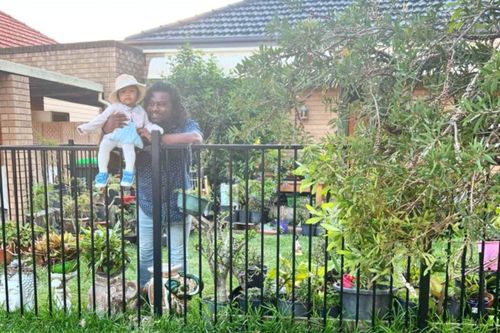Share this @internewscast.com
Arafath Mannan was blindsided to receive a notice that would be illegal in NSW today.
The now 38-year-old moved into a home in Riverwood, in south-west Sydney, in 2017.
During his time there, he experienced numerous significant life events, including having various full-time jobs, undergoing surgeries, living through the COVID-19 pandemic, facing redundancy, getting married, and welcoming his daughter into the world.

The father renewed his lease in August last year and copped a rent hike, which brought the weekly total up from $650 to $720.
Mannan struggled to keep up, but his situation deteriorated after he was hit with a no-grounds eviction notice just two months later.
The no-grounds eviction notice, seen by 9news.com.au, meant that Mannan was not given a reason why he had to leave, but had 90 days to do so.
Mannan said he was blindsided.
“I just didn’t know what to do, literally, because I know how the market is,” he said.
“I just was thinking that I was secure, because my rent went up two months ago… the lease period just started.”

The surprising housing markets tipped for growth this year
Mannan was told the owner planned to move in and renovate the home.
But, in the months after the eviction, he discovered the Riverwood property was back on the market at the same price.
“They kicked me out, the owner did not move in, and they tried to put the property back in the market, exactly the same price,” he said.
“What have I done wrong? I was actually hurt. It just felt personal. They just kicked me out for no reason whatsoever.”
After some time on the market, the property’s rent was reduced to $700 per week.
Mannan luckily found another rental just 150 metres down the road from his former address.
In the end, he lost about $630 of his bond to repairs and over $300 for moving fees.
New rental reforms that ended no-grounds evictions came into effect in NSW this week.
Currently, agents and landlords must provide a valid reason for eviction, which can include situations such as a tenant breaking their lease agreement, causing damage to the property, failing to pay rent, the landlord’s decision to sell the property, or the property no longer being designated as a rental unit.
Agents and landlords who fail to comply will be dealt with under the Rental Taskforce.
“Renters have lived with the anxiety of being evicted without cause for far too long. Today marks the end of that,” stated Rose Jackson, the Minister for Housing and Homelessness, earlier this week.
While the changes were welcomed by some, Mannan said he did not believe they would have much material change because landlords could still decide to increase the rent, effectively evicting tenants who cannot afford the hike, or sell the property.
“I know, in the paper and in the books, it looks really nice… but it doesn’t secure us. We need more property to be built, it’s a simple solution. There’s no supply,” he said.












